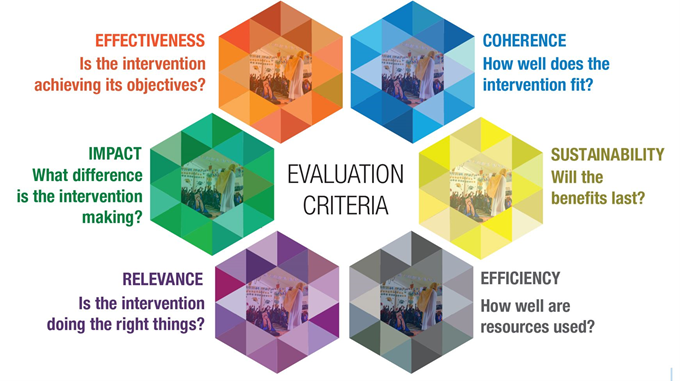-
Last updated on
The six evaluation criteria for development cooperation, established by the OECD Development Assistance Committee (DAC).
- relevance
- coherence
- effectiveness
- efficiency
- impact
- sustainability
Relevance: is the intervention doing the right things?
The extent to which the intervention objectives and design respond to beneficiaries, global, country, and partner/institution needs, policies and priorities, and continue to do so if circumstances change.
Coherence: how well does the intervention fit?
The compatibility of the intervention with other interventions in a country, sector or institution.
Effectiveness: is the intervention achieving its objectives?
The extent to which the intervention achieved or is expected to achieve its objectives and its results, including any differential results across groups.
Efficiency: how well are resources being used?
The extent to which the intervention delivers or is likely to deliver results in an economic and timely way.
Impact: what difference does the intervention make?
The extent to which the intervention has generated or is expected to generate significant positive or negative, intended or unintended, higher-level effects.
Sustainability: will the benefits last?
The extent to which the net benefits of the intervention continue or are likely to continue.
More information on the DAC criteria?
Read our 2020 Annual Report in Dutch or French, or consult the OECD website.

